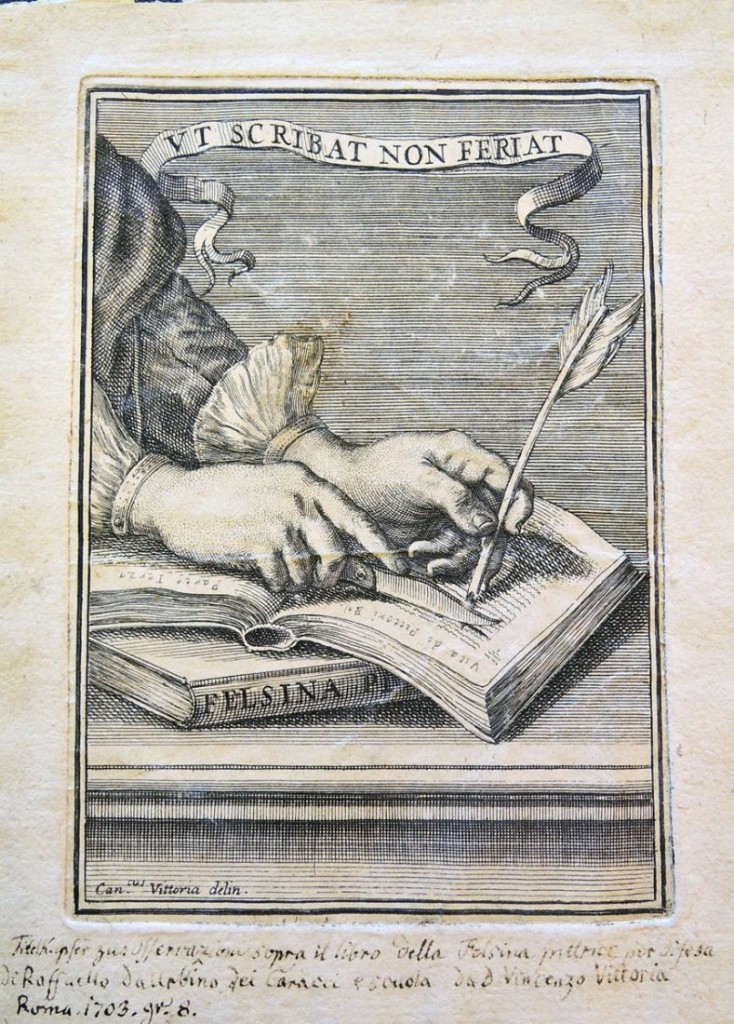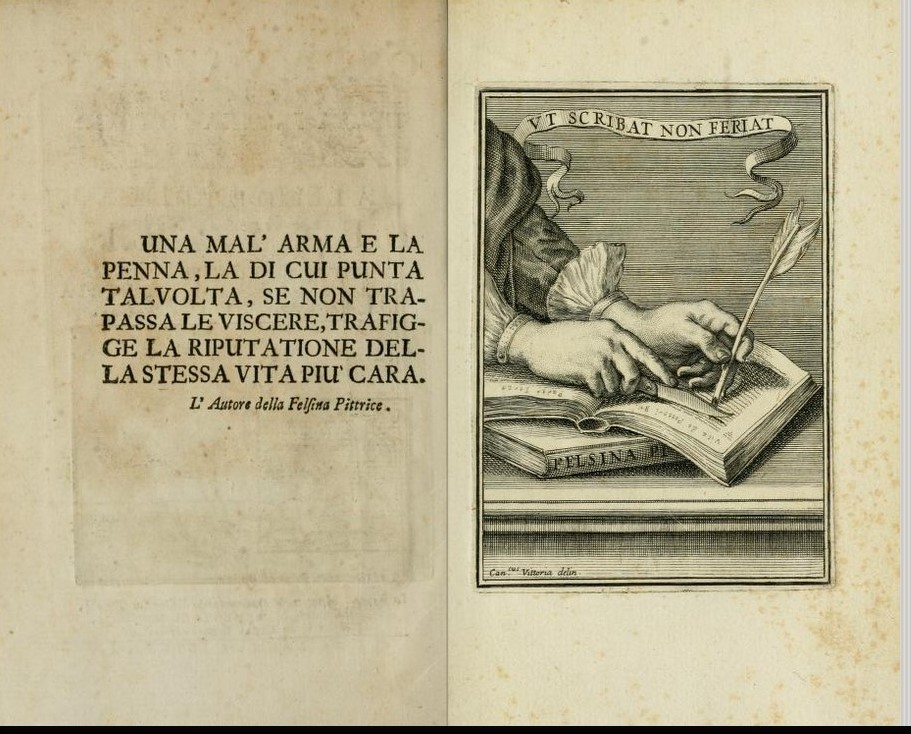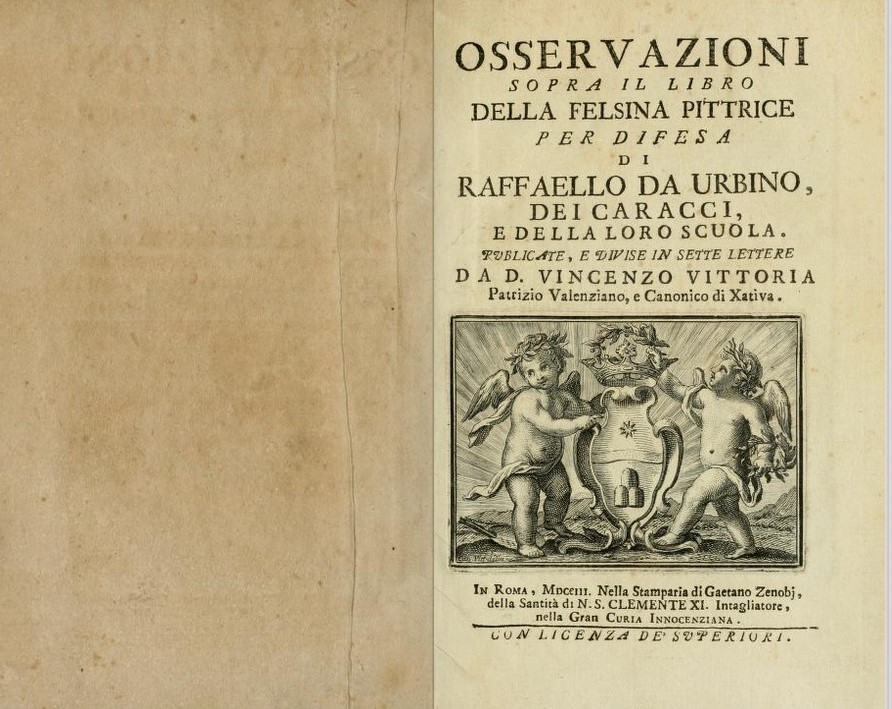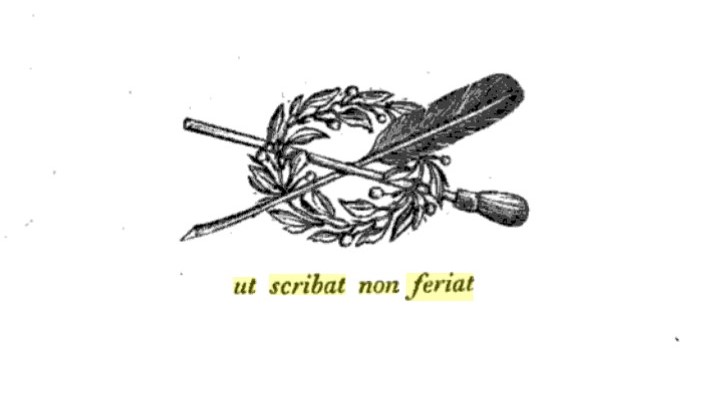 A single leaf was discovered in our collection, which was removed from a copy of Vincentezo Vittoria (Vincente Victoria, 1658-1712), Osservazioni Sopra Il Libro Della Felsina Pittrice Per Difesa Di Raffaello Da Urbino (Roma: Nella Stamperia di Gaetano Zenobj, della Santità di N.S. Clemente XI. Intagliatore, nella Gran Curia Innocenziana, 1703).
A single leaf was discovered in our collection, which was removed from a copy of Vincentezo Vittoria (Vincente Victoria, 1658-1712), Osservazioni Sopra Il Libro Della Felsina Pittrice Per Difesa Di Raffaello Da Urbino (Roma: Nella Stamperia di Gaetano Zenobj, della Santità di N.S. Clemente XI. Intagliatore, nella Gran Curia Innocenziana, 1703).
 Getty Research Institute’s book above and below
Getty Research Institute’s book above and below

Graphic Art’s plate shows a man sharpening a quill dangerously close to a copy of Carlo Cesare Malvasia’s Felsina Pittrice (Lives of the Bolognese painters), captioned above Ut Scribat Non Feriat (May it write, not strike, as a wish, referring to the sharpened quill). The motto was used in Vittoria’s other books with a simplified image.
The Spanish painter and printmaker Vicente Victoria y Gastaldo (1658-1712) was born in Valencia but spent much of his working life in Rome. See E. Páez, Repertorio de Grabados Españoles (Madrid: Ministerio de Cultura, 1981). Marquand NE699 .P34 1981
Besides writing in defense of Raphael in the above volume, Vittoria also wrote a sonnet in praise of painting:
Emula del criador, arte excelente
Misteriosa deidad, muda canora
Sin voz sirena y sabia encantadora
Verdad fingida, engafio permanente,
Del alma suspension, sombra viviente
Erudita y no garrula oradora,
Libro abierto, que mas ensefia y ora
Que el vohimen mas docto y eloqiiente:
Quanto el juicio comprehcnde, ama el anhelo
Si advierte en ti ; y en tu matiz fecunda
Otra naturaleza halla el desvelo.
Admiro en ti casi un criador segundo,
Pues Dios crio de nada tierra y cielo,
De casi nada ti’t haces cielo y mundo.
Great Art, that emulates the Maker’s hand,
Mute speech, that holds man’s spirit in suspense,
Sweet voiceless Siren, charming every sense,
Fiction, that firm, as truth herself, shall stand,
Shadow, full fraught with life and meanings grand,
That more in briefest compass can condense
And speak, of lore and lofty eloquence
Than any tome, or teacher of the land!
Whate’er the mind can grasp, whate’er the soul
Embraces in its love, whate’er the earth
Brings forth of beauty, in thy tints we see.
In thee creations, new and bright, unroll
Their goodly stores, and nature’s second birth
From formless nothing springs to light in thee !

